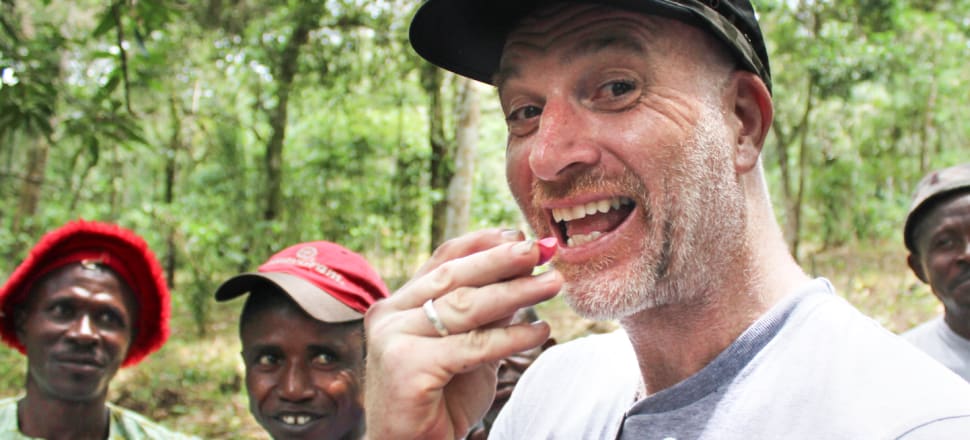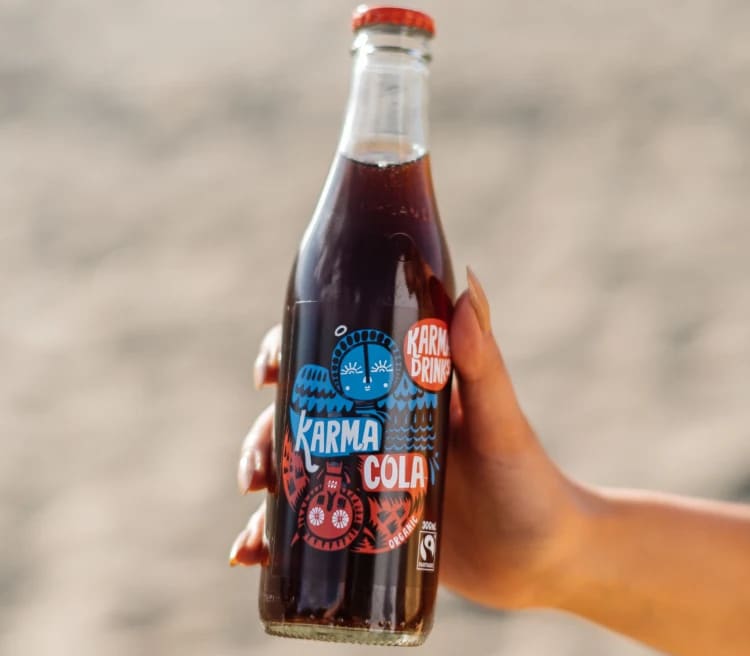
The ethical beverage company credits its success to clearly differentiating itself in the soft-drinks market
When most businesses celebrate their 10th birthday, you'd expect the room to be filled with staff and maybe a board member or two.
But ethical beverage company Karma Drinks was lucky enough to have Jacinda Ardern stroll into the office for its special day.
“I cheekily asked through a friend if she’d like to DJ at our party, but I got the response that the Prime Minister doesn’t DJ anymore,” Karma Drinks co-founder Simon Coley says. “She turned up for a cup of tea and some cake instead."
It’s tough work running a business, especially during the last two years, and Coley says the team is taking a moment to reflect and celebrate.
“You don’t often get the time to appreciate things that have gone right,” he says. “You’re always focusing on the bad stuff, the things that have gone wrong.”
Things seem to be looking pretty good for the company. Ten years ago this month, Coley co-founded Karma Drinks with Chris and Matt Morrison.
The first drinks were sold in Kokako Cafe in the Auckland suburb of Grey Lynn. Its headquarters are still based in a humble bright yellow building off Williamson Road but its reach has expanded into more than 20 countries around the world.
The United Kingdom is a dominant market, with half of its sales recorded in this region. It’s got 25 staff on the books, with seven located in the UK.
In the past year, its value has increased by $5m. The company has also managed to increase its revenue by 53 percent year on year after a 95 percent drop in cash flow at the beginning of the pandemic. The export growth has also doubled, overtaking pre-Covid revenue in the UK by 102 percent year on year, and 45 percent in Australia.
With so many soft drink companies on offer for customers to choose from, the business has sought to differentiate itself from the herd by placing the philanthropic drive at the center of the business.
“There’s a lot of places that we can’t compete on price, we can only compete on values. Turning those values into a financial value is the real challenge," – Simon Coley, Karma Drinks co-founder
A major part of this is the Karma Foundation in Sierra Leone. One percent of the company’s revenue goes back into this organisation, which supports the local community in West Africa that grows the cola nuts used in some of the drinks.
So far, it has helped send more than 100 girls to school and build a bridge for the town.
“It’s the only reason that we can say karma in our name. It’s these things that make our brand authentic,” he says. “There’s a lot of places that we can’t compete on price, we can only compete on values. Turning those values into a financial value is the real challenge.”
But, the quality of the drink remains key at the end of the day. Coley says the experience of the first sip of any drink is vital so that the customer buys again. It takes about three repeat purchases before someone reads the back of the label and reads about the company’s mission.
Aside from the do-good approach for local communities in West Africa, the company is focused on reducing its carbon footprint.
“If you’re not thinking about climate change from a commercial perspective, you’re not living in this world,” he says.
Part of this is looking at ways the Karma Foundation in Sierra Leone can be used as a carbon sink. The company has also moved its canning facilities for the Asia Pacific markets to Tauranga, which has eliminated 1.4 tonnes of plastic shipping wrap whilst reducing the carbon impact from freight in their supply chain.

It hasn’t been a smooth ride, however. Karma Drinks has rebounded from the Covid pandemic with a double in profit, thanks to seriously restructuring the business and outsourcing staffing, but the outbreak seriously rocked the company at first.
Half of the company’s sales are in the UK, meaning hospitality joints shuttering had a trickle-down effect on the company.
The company also had a new chief executive, Ben Dando, start in the UK about two weeks before the lockdowns hit.
“He went from looking at this bright and shiny purpose-driven company to watching 80 to 90 percent of our key customers shut down,” he says. “Covid turned our sales pipeline from a fire hydrant to a trickle.”
Post-Brexit, the company has needed to navigate tax complications when selling to the rest of Europe, while worker shortages caused by the change have also disrupted operations.
Looking forward, the company is focused on expanding into new markets, such as the United States, and cementing its ethical brand. This year, the company is set to get B Corp certification.
“The good thing about the B-Corp framework is that its a way for us to have external auditing of our own behaviour,” he says.
“There’s a lot of greenwashing around so we need to be squeaky clean when it comes to substantial claims."







